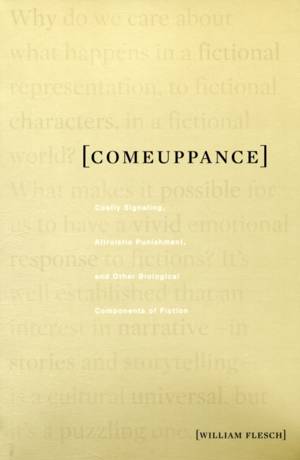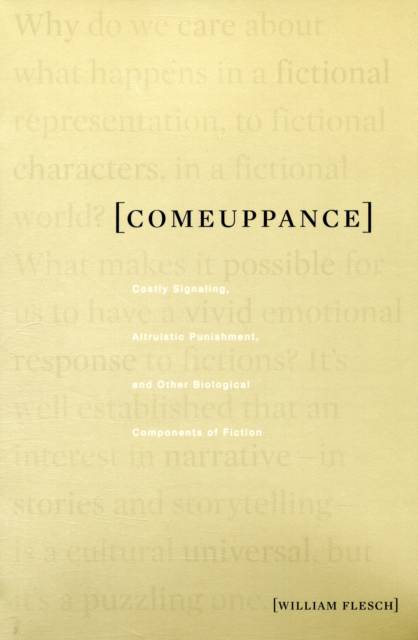
- Retrait gratuit dans votre magasin Club
- 7.000.000 titres dans notre catalogue
- Payer en toute sécurité
- Toujours un magasin près de chez vous
- Retrait gratuit dans votre magasin Club
- 7.000.000 titres dans notre catalogue
- Payer en toute sécurité
- Toujours un magasin près de chez vous
Comeuppance
Costly Signaling, Altruistic Punishment, and Other Biological Components of Fiction
William Flesch
Livre broché | Anglais
67,95 €
+ 135 points
Description
With Comeuppance, William Flesch delivers the freshest, most generous thinking about the novel since Walter Benjamin wrote on the storyteller and Wayne C. Booth on the rhetoric of fiction. In clear and engaging prose, Flesch integrates evolutionary psychology into literary studies, creating a new theory of fiction in which form and content flawlessly intermesh.
Fiction, Flesch contends, gives us our most powerful way of making sense of the social world. Comeuppance begins with an exploration of the appeal of gossip and ends with an account of how we can think about characters and care about them as much as about persons we know to be real. We praise a storyteller who contrives a happy or at least an appropriate ending, and fault the writer who refuses us one. Flesch uses Darwinian theory to show how fiction satisfies our desire to see the good vindicated and the wicked get their comeuppance. He conveys the danger and excitement of reading fiction with nimble intelligence and provides wide reference to stories both familiar and little known. Flesch has given us a book that is sure to claim a central place in the discussion of literature and the humanities.Spécifications
Parties prenantes
- Auteur(s) :
- Editeur:
Contenu
- Nombre de pages :
- 264
- Langue:
- Anglais
Caractéristiques
- EAN:
- 9780674032286
- Date de parution :
- 01-03-09
- Format:
- Livre broché
- Format numérique:
- Trade paperback (VS)
- Dimensions :
- 155 mm x 231 mm
- Poids :
- 385 g







